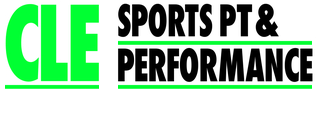How can nutrition make an athlete BETTER?
Proper nutrition can help an athlete or active person….
- Heal from injury
- Improve performance
- Recover from training sessions
- Avoid “hitting the wall” during endurance events (running, cycling, swimming, etc)
- Boost immune system function
By learning how to…
- Replace processed foods with whole, minimally processed foods
- Get the right amounts of macronutrients (carbs, fat, and protein)
- Get the right amounts of micronutrients (vitamins and minerals)
- Hydrate for training, competition, or daily life
- Sleep well
- Eat mindfully
- Select the right portions of foods – without counting calories
- Recognize hunger and fullness signals sent by the body
- Prepare or cook food
- Shop for healthy foods; read labels
- Be consistent with healthy choices
- Manage stress
Why did CLE Sports PT & Performance add nutrition services?
Here’s my story…
I. LOVE. FOOD.
Growing up, I loved two things: playing soccer and post-game meals. Analyzing my on-field performance with my parents over a Krispy Kreme doughnut or laughing with my teammates over a pasta dinner were as much about the food as the conversation and the experiences.
Then, I went to college…
I still loved those dinners and bus rides with my Duquesne teammates, but there was one difference.
I rode the bench.
I never saw the field my entire freshman year. But I ate like I played every minute of every game. Road trip food was spectacular, and so was the campus dining hall (an entire wall of cereal? Self serve ice cream? Ahh, memories…).
By the end of my freshman year, I gained 25 pounds. No joke…25. Over summer break, I started learning what a calorie was and realizing I had to exercise portion control. In three months, I lost all the weight through a combination of eating healthier (didn’t have access to my never-ending cereal bowl), counting calories, and training my butt off (literally) to get some playing time.
But I lost the weight too fast. As a reward for what I thought was hard work, I ended up with a stress reaction in my foot. Female Athlete Triad….Ever heard of it? I hadn’t until then. Ironically I got present on it at the American Physical Therapy Association’s 2016 annual meeting. I wish I would have known then what I know now about training and recovery.
Throughout college and the years after, I struggled between balancing what I thought was “healthy” food (fat-free salad dressing, Splenda, Diet Coke, low-fat cheese) and enjoying the stuff I truly love (chocolate, Croatian crepes, macaroni and cheese, buffalo chicken dip). Eventually, I found an 80/20% mentality that I still follow today (80% healthy). And I married an amazing husband who enjoys cooking as much as I do. A husband who forces me out of my comfort zone with certain recipes, who signed us up for a community sponsored agriculture program, and who knows all the vendors at Cleveland’s West Side Market because he is a Saturday morning regular. We cherish our Sunday dinners because they are made with love together.
Buddy- This guy likes our cooking too.
Spinach and kale crostata with fennel crust
Coronation chicken – best enjoyed in the Scottish Highlands. Recreated in Cleveland
A year after I got married, I was diagnosed with Lupus. It affects my skin, mostly on my hands and feet. I know that my passion for fitness and working out has prevented it from getting worse, but it wasn’t until last year that I realized some of the foods I eat might be contributing to the disease. All of the low-fat, processed food I thought was healthy added to the inflammation in my body.
I learned this through research on my own – none of the (multiple) rheumatologists or dermatologists I saw mentioned anything about diet. I was given medication and told to protect my skin in cold weather. So I continued to research and realized I needed to learn more about nutrition science. I wanted an evidence-based approach to navigate the many (false) nutrition claims out there.
Enter Precision Nutrition. The fitness industry’s top education program. The Precision Nutrition (PN) method built on scientific research and a “whole foods first” approach. My PN certification has given me the knowledge to use food and nutrients to improve my client’s performance, help them recover from injury, and boost their immune systems – all while preserving the notion that food is more than just fuel. It’s part of someone’s story.
There are no “good” or “bad” foods; there are choices that are “just a little bit better.”
And it’s ok to mindfully enjoy the occasional doughnut.

